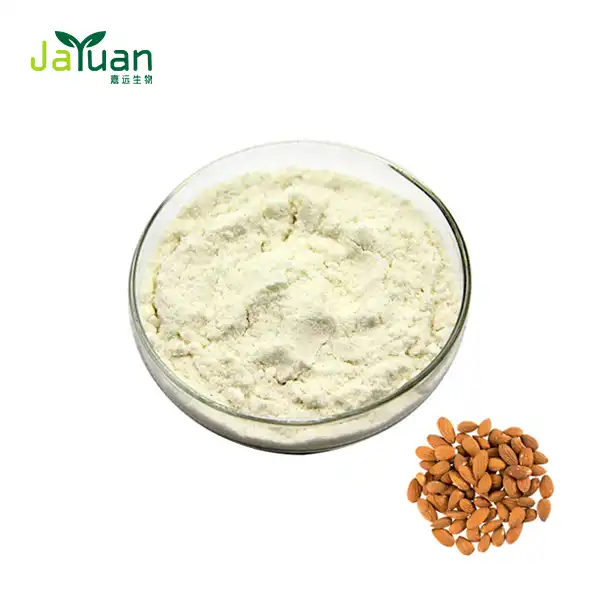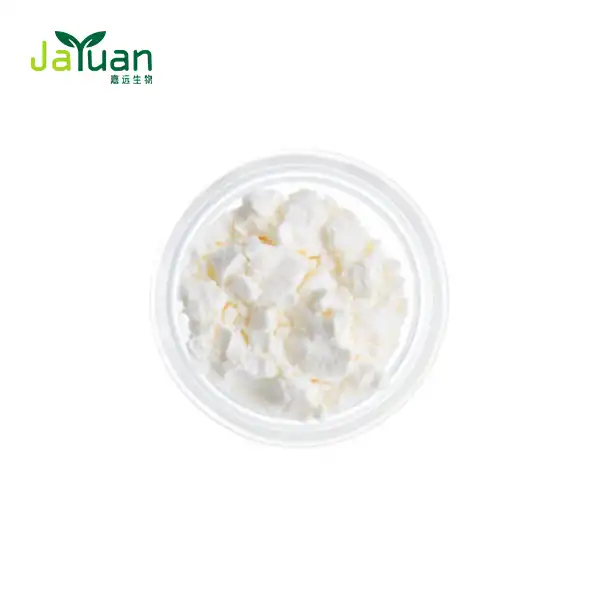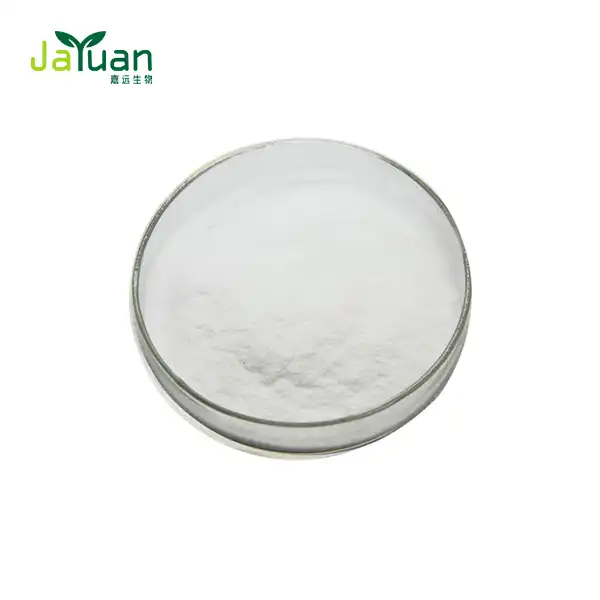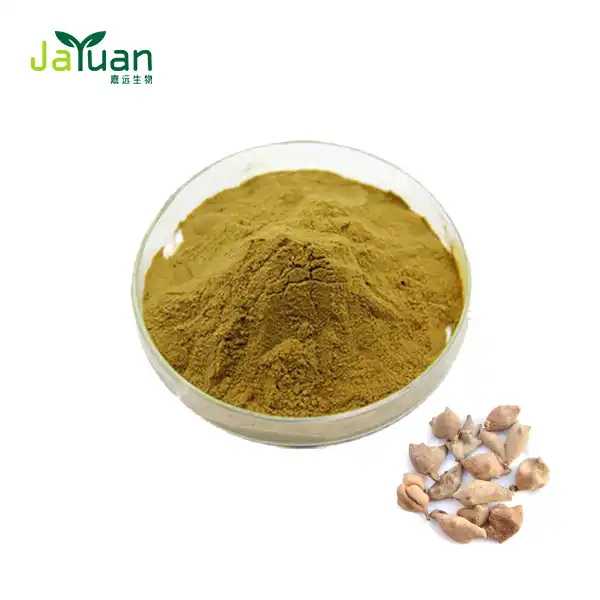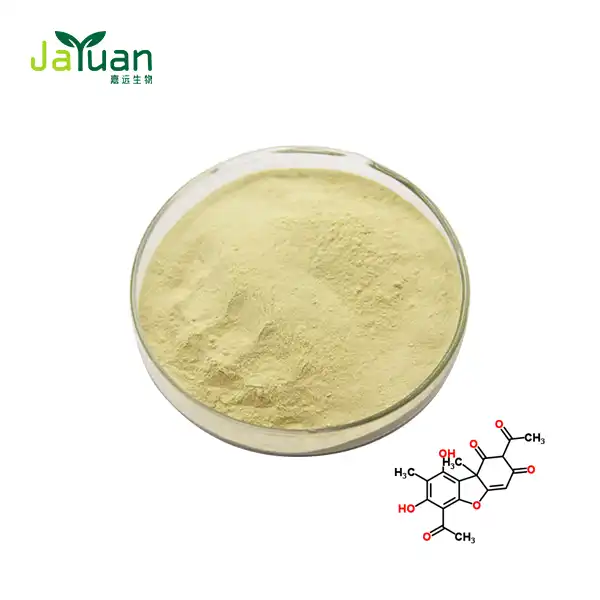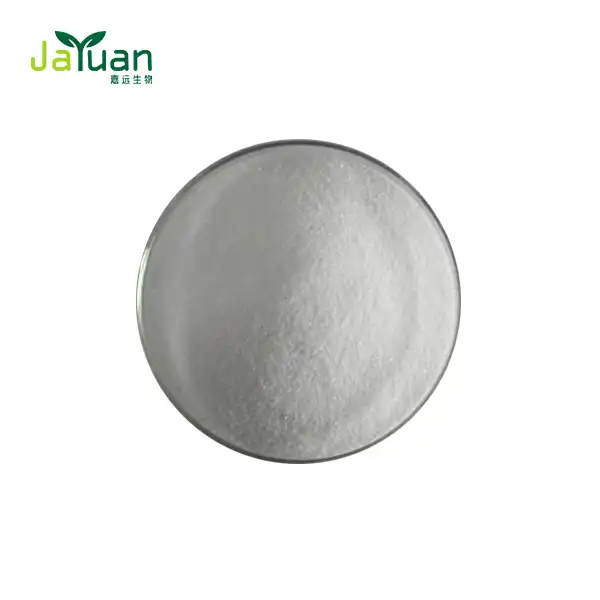Exploring the Anti-Inflammatory Benefits of Polygonum Cuspidatum Extract
Inflammation is a common underlying factor in many chronic diseases, prompting researchers and health enthusiasts alike to seek natural remedies. One such promising solution is Polygonum cuspidatum extract, derived from a plant known for its potent anti-inflammatory properties. This article delves into the remarkable benefits of this extract and its potential to combat inflammation naturally.

How Polygonum Cuspidatum Extract Reduces Inflammation Naturally
Polygonum cuspidatum, also known as Japanese knotweed, has been used in traditional medicine for centuries. The extract derived from this plant contains a wealth of bioactive compounds, with resveratrol being one of the most notable. These compounds work synergistically to combat inflammation through various mechanisms:
- Antioxidant Action: Polygonum cuspidatum extract powder is rich in antioxidants that neutralize free radicals, reducing oxidative stress and inflammation at the cellular level.
- Cytokine Modulation: The extract helps regulate the production of pro-inflammatory cytokines, effectively dampening the inflammatory response.
- NF-κB Inhibition: By inhibiting the nuclear factor kappa B (NF-κB) pathway, a key regulator of inflammation, the extract helps suppress inflammatory processes throughout the body.
- COX-2 Suppression: Polygonum cuspidatum root extract has been shown to inhibit cyclooxygenase-2 (COX-2), an enzyme involved in inflammation and pain.
These natural anti-inflammatory mechanisms make Polygonum cuspidatum extract a compelling option for those seeking to address chronic inflammation without relying solely on synthetic drugs.
The Science Behind Anti-Inflammatory Properties of Polygonum Cuspidatum
The efficacy of Polygonum cuspidatum extract in reducing inflammation is not merely anecdotal; it is backed by a growing body of scientific research. Several studies have elucidated the molecular mechanisms through which this extract exerts its anti-inflammatory effects:
- Resveratrol's Role: Resveratrol is a powerful polyphenolic compound found in Polygonum cuspidatum, commonly known as Japanese knotweed. It has garnered significant attention due to its potential health benefits, particularly its anti-inflammatory properties. Research has shown that resveratrol activates SIRT1, a protein that plays a crucial role in regulating cellular health, longevity, and metabolism. By activating SIRT1, resveratrol helps to maintain the balance of oxidative stress and inflammation in the body. SIRT1's activation leads to improved mitochondrial function, enhanced DNA repair, and reduced production of pro-inflammatory cytokines. These effects contribute to the potential of resveratrol in preventing or managing chronic inflammatory diseases, as well as supporting overall health and longevity.
- Emodin's Contribution: Another important compound in Polygonum cuspidatum is emodin, an anthraquinone derivative that has demonstrated substantial anti-inflammatory effects in various studies. Emodin works by modulating several key signaling pathways involved in inflammation, such as NF-κB, MAPK, and COX-2. These pathways are critical in regulating the body’s immune response and the production of inflammatory mediators. By inhibiting the activation of these pathways, emodin can reduce the production of pro-inflammatory molecules, thus alleviating inflammation. Additionally, emodin has shown potential in combating oxidative stress, which often accompanies chronic inflammation.
- Polydatin's Impact: Polydatin, a glycoside of resveratrol found in Polygonum cuspidatum, also contributes to the anti-inflammatory effects of this plant. Once metabolized in the body, polydatin is converted into resveratrol, enhancing its biological activity. Studies have shown that polydatin can significantly reduce both inflammation and oxidative stress in various experimental models, such as those involving arthritis and cardiovascular diseases. By reducing oxidative damage and suppressing inflammatory markers, polydatin helps to protect cells from damage and promote a balanced immune response. Its ability to modulate inflammation and oxidative stress makes polydatin a promising compound for managing inflammatory conditions and promoting overall health.
These scientific findings underscore the potential of Polygonum cuspidatum extract as a natural anti-inflammatory agent. Its multi-faceted approach to tackling inflammation sets it apart from single-compound solutions and highlights its potential in addressing complex inflammatory conditions.

Using Polygonum Cuspidatum Extract for Chronic Inflammatory Conditions
The anti-inflammatory prowess of Polygonum cuspidatum extract makes it a promising candidate for managing various chronic inflammatory conditions:
- Cardiovascular Health: The anti-inflammatory properties of polygonum cuspidatum root extract play a significant role in promoting cardiovascular health. By reducing inflammation in the blood vessels, it can help improve blood flow and prevent the buildup of plaque, which is a key factor in the development of atherosclerosis. This, in turn, may reduce the risk of heart disease and stroke, supporting overall heart health.
- Joint Health: The extract's ability to modulate inflammation also offers potential relief for individuals suffering from arthritis and other joint-related inflammatory conditions. By targeting the inflammatory processes that contribute to pain, stiffness, and swelling in the joints, it may help alleviate symptoms and improve mobility, offering a natural approach to managing chronic inflammatory joint disorders.
- Digestive Health: Some studies suggest that Polygonum cuspidatum extract may help alleviate inflammation in the digestive tract, potentially benefiting conditions like inflammatory bowel disease.
- Skin Health: The antioxidant and anti-inflammatory properties of the extract may contribute to healthier skin and potentially help manage inflammatory skin conditions.
While the potential benefits are promising, it's crucial to note that more research is needed to fully understand the efficacy and safety of Polygonum cuspidatum extract in treating specific conditions. As with any supplement, it's advisable to consult with a healthcare professional before incorporating it into your wellness routine.
The growing interest in natural anti-inflammatory agents has placed Polygonum cuspidatum extract in the spotlight. Its unique blend of bioactive compounds offers a multi-pronged approach to combating inflammation, making it a valuable addition to the arsenal of natural health solutions. As research continues to unfold, we may discover even more applications for this remarkable plant extract in promoting overall health and well-being.
Are you interested in harnessing the anti-inflammatory benefits of Polygonum cuspidatum extract for your health products? Contact Xi'an Jayuan Bio-Tech today to learn more about our high-quality Polygonum cuspidatum extract powder and how we can support your formulation needs. Reach out to us at sales@jayuanbio.com for more information on our products and services.
References
- Zhang, H., et al. (2013). Resveratrol attenuates oxidative stress and extends lifespan in the annual fish Nothobranchius guentheri. Experimental Gerontology, 48(12), 1486-1492.
- Pangeni, R., et al. (2014). Resveratrol: review on therapeutic potential and recent advances in drug delivery. Expert Opinion on Drug Delivery, 11(8), 1285-1298.
- Peng, W., et al. (2013). Emodin: A Review of its Pharmacology, Toxicity and Pharmacokinetics. Phytotherapy Research, 27(7), 1121-1128.
- Du, Q.H., et al. (2013). Polydatin: A review of pharmacology and pharmacokinetics. Pharmaceutical Biology, 51(11), 1347-1354.
- Xiao, K., et al. (2018). Polygonum cuspidatum: A Review of Phytochemistry and Pharmacological Properties. Phytotherapy Research, 32(5), 823-858.
- Lin, Y.W., et al. (2015). Anti-inflammatory effects of the extract of Polygonum cuspidatum on lipopolysaccharide-activated mouse macrophages. Journal of Ethnopharmacology, 168, 152-160.

